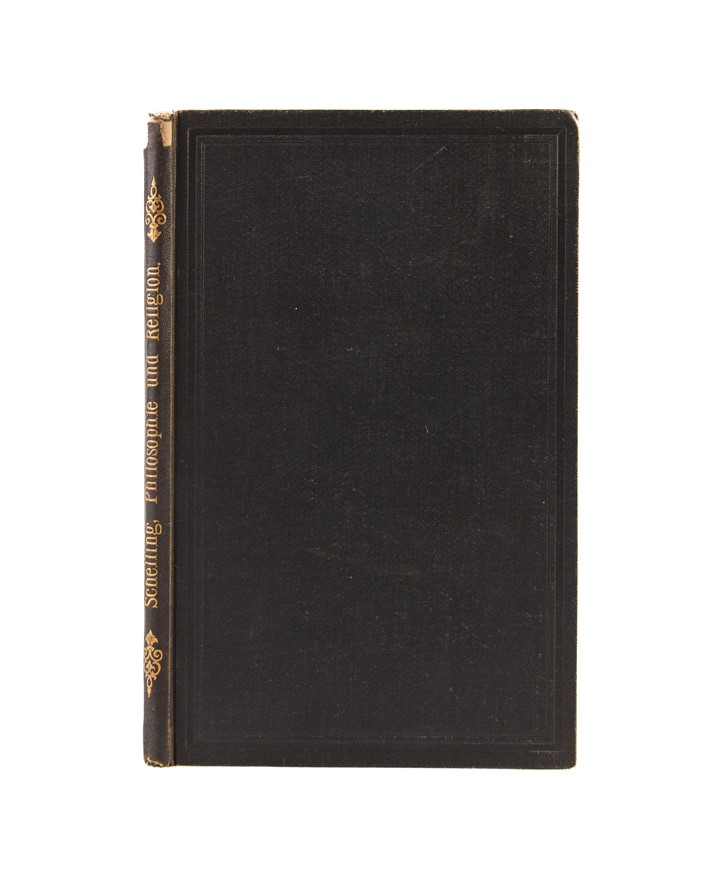Philosophie und Religion.
SCHELLING Friedrich Wilhelm Joseph von (1804.)
£300.00 [First Edition]
Please contact us in advance if you would like to view this book at our Curzon Street shop.
First edition. 8vo. vi, 80 pp. Contemporary black cloth, spine lettered in gilt, covers with simple triple blind fillet borders, printed patterned endpapers, marbled edges (pp. 73/74 misnumbered as issued; spine chipped at head, otherwise a very good copy indeed). Tübingen, I. G. Cotta'schen Buchhandlung.
'Schelling's own dissatisfaction with his early versions of identity theory derives from his rejection of Spinozism. Spinoza regards the move from God to the world of conditions as a logical consequence of the nature of God. Schelling becomes convinced that such a theory gives no reason why the absolute, the unconditioned, should manifest itself in a world of negative conditions at all. Schelling is therefore confronted with explaining why there is a transition from the absolute to the finite world. In Philosophy and Religion, of 1804, he claims, like Jacobi, that there is no way of mediating between conditioned and unconditioned, and already makes the distinction between negative and positive philosophy, which will form the heart of his late work. Explicating the structure of the finite world leads to negative philosophy, but much has already been gained by the fact that the negative, the realm of nothingness, has been separated by a sharp limit from the realm of reality and of what alone is positive. The question which comes to concern Schelling is how philosophy can come to terms with a ground which cannot be regarded as the rational explanation of the finite world' (Stanford Encyclopedia of Philosophy).
Stock Code: 249805




